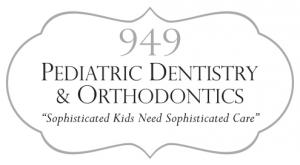Manhattan Pediatric Dentist Say Children Should Not “Swish” with Water after Brushing Their Teeth
Leading pediatric dentist, Barry Jacobson, announces a new guideline from the American Academy of Pediatric Dentistry regarding kids and their brushing habits.
According to Jacobson, the fluoride varnish treatments that his staff applies to children’s teeth are now necessary for dental health, because kids are not getting the fluoride that they used to.
“The foods that kids eat, plus their snack and soda grazing throughout the day, is a big reason for the increase in tooth decay among our youngest patients,” Jacobson says. “Even one hundred percent juice is full of sugar. So, if kids are drinking from a sippy cup throughout the day, it can be harmful to their oral health because that sugar on their teeth for hours at a time, gets converted to acid, and begins to rot the teeth."
According to Dr. Jacobson, parents don’t have to forgo the sweet stuff altogether. Treats, he says, can be served at meal times when saliva is flowing and can neutralize the acid that causes cavities. Sugar-free gum helps keep saliva flowing, so, he says it's okay to rely on that as well.
“Other factors in the rise tooth of decay among kids include the fact that many parents are sticking to bottled water, which doesn't have the fluoride that public water has,” he explains. “Also, some parents think that fluoride is toxic, so they only use fluoride-free toothpastes for their children.”
Jacobson says that for the first 10 years of a child’s life, their permanent teeth are forming underneath the baby teeth. While it is true that ingesting too much fluoride can harm development of permanent teeth, he explains that it is great for preventing cavities when the right amount is used.
“Fluoride is so important that the American Academy of Pediatric Dentistry now recommends against swishing with water after brushing the teeth, a practice that most people are used to,” says Jacobson. “By leaving the excess toothpaste in the mouth, you allow the fluoride to continue working for hours, which helps reduce cavities for people of all ages.”
Jacobson says that the American Academy of Pediatric Dentistry (AAPD) now recommends the use of fluoride toothpaste as soon as the first teeth come into a child's mouth. He suggests that parents use an amount that equals the size of a grain of rice until age three, and increase that to a pea-sized amount until age six.
For 17 years, Dr. Barry L. Jacobson DMD, FAAPD, has been a Pediatric Dentist in the New York City area. His practice, located at 949 Park Avenue, New York, NY, offers laser dentistry for children, cosmetic dentistry for children, preoperative dental care for children, soft tissue procedures, 3D CAD-CAM crown fabrication, porcelain fillings, and treatment of fearful children, with behavior management experts on hand. Call 212-997-6453 (212-99-SMILE) for more information or visit Dr. Jacobson’s website at www.949pediatricdentistry.com).
Lue Guarrasi
dzine it
2129890813
email us here
Legal Disclaimer:
EIN Presswire provides this news content "as is" without warranty of any kind. We do not accept any responsibility or liability for the accuracy, content, images, videos, licenses, completeness, legality, or reliability of the information contained in this article. If you have any complaints or copyright issues related to this article, kindly contact the author above.

